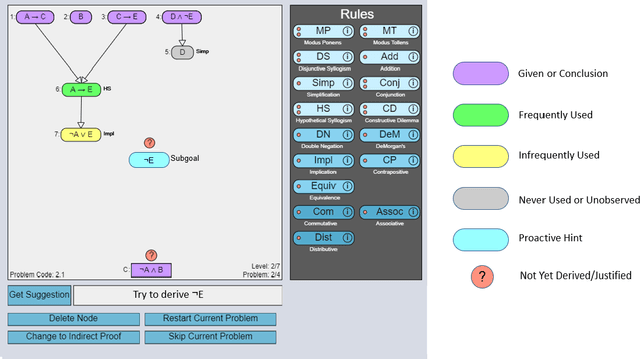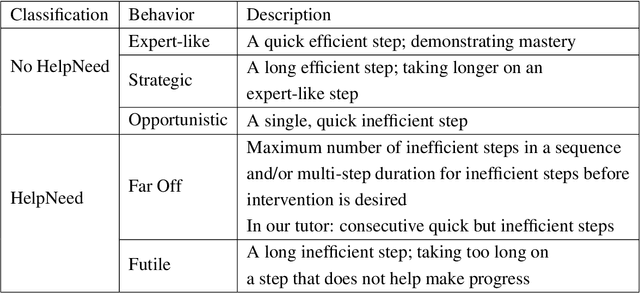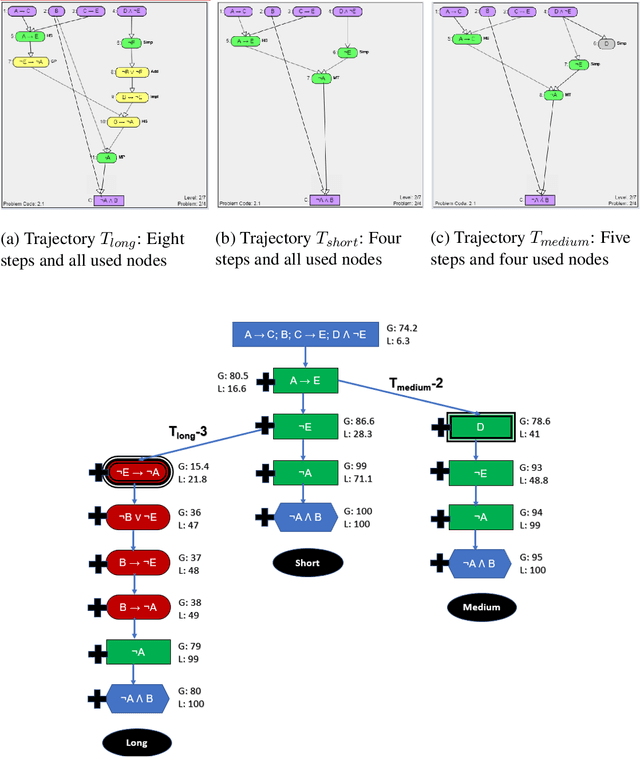Extending the Hint Factory for the assistance dilemma: A novel, data-driven HelpNeed Predictor for proactive problem-solving help
Paper and Code
Oct 08, 2020



Determining when and whether to provide personalized support is a well-known challenge called the assistance dilemma. A core problem in solving the assistance dilemma is the need to discover when students are unproductive so that the tutor can intervene. Such a task is particularly challenging for open-ended domains, even those that are well-structured with defined principles and goals. In this paper, we present a set of data-driven methods to classify, predict, and prevent unproductive problem-solving steps in the well-structured open-ended domain of logic. This approach leverages and extends the Hint Factory, a set of methods that leverages prior student solution attempts to build data-driven intelligent tutors. We present a HelpNeed classification, that uses prior student data to determine when students are likely to be unproductive and need help learning optimal problem-solving strategies. We present a controlled study to determine the impact of an Adaptive pedagogical policy that provides proactive hints at the start of each step based on the outcomes of our HelpNeed predictor: productive vs. unproductive. Our results show that the students in the Adaptive condition exhibited better training behaviors, with lower help avoidance, and higher help appropriateness (a higher chance of receiving help when it was likely to be needed), as measured using the HelpNeed classifier, when compared to the Control. Furthermore, the results show that the students who received Adaptive hints based on HelpNeed predictions during training significantly outperform their Control peers on the posttest, with the former producing shorter, more optimal solutions in less time. We conclude with suggestions on how these HelpNeed methods could be applied in other well-structured open-ended domains.
 Add to Chrome
Add to Chrome Add to Firefox
Add to Firefox Add to Edge
Add to Edge